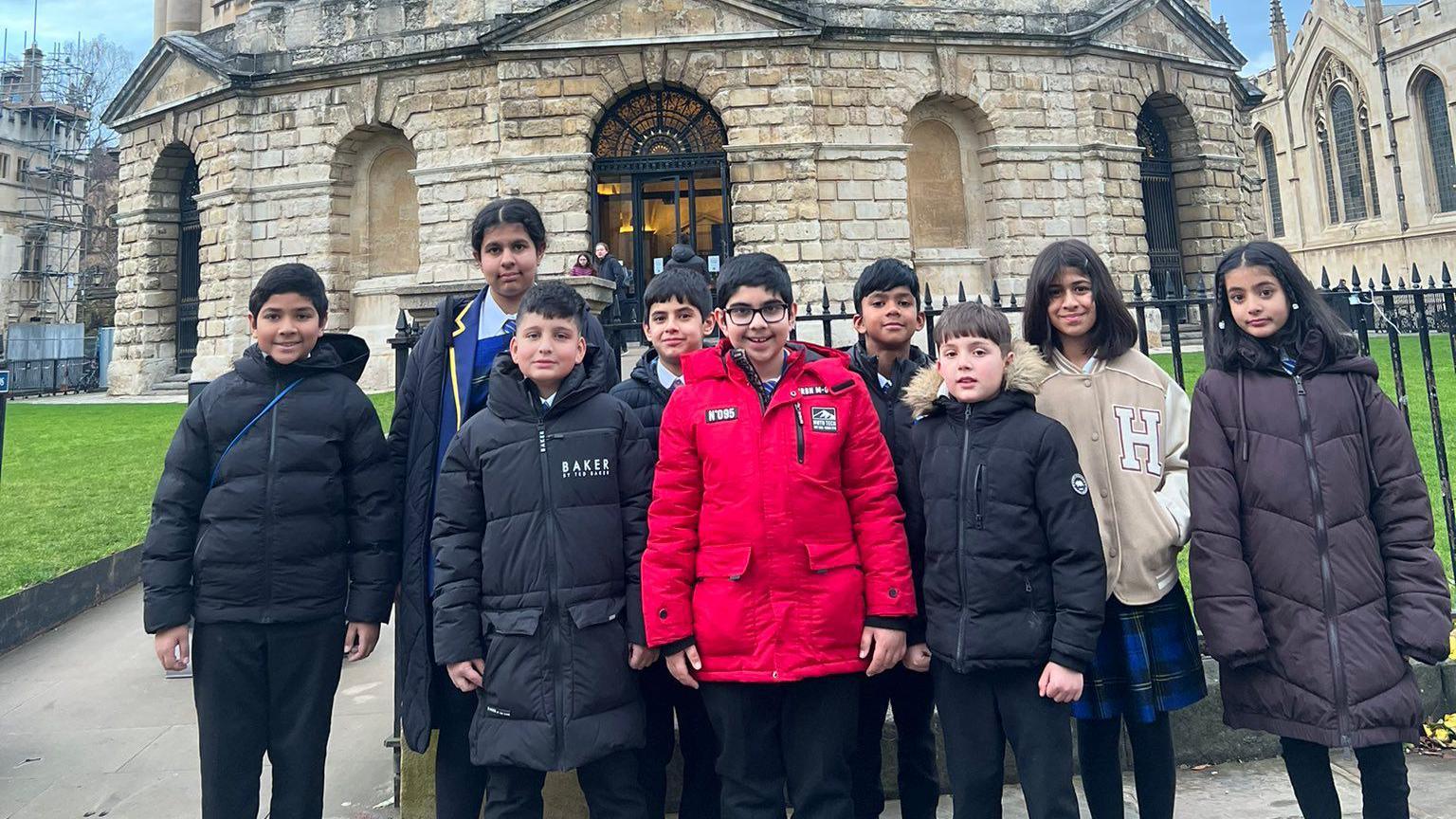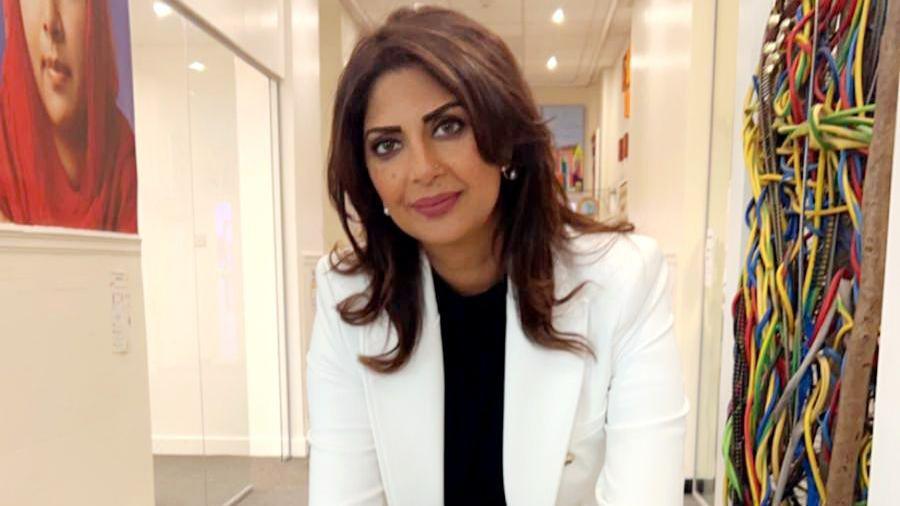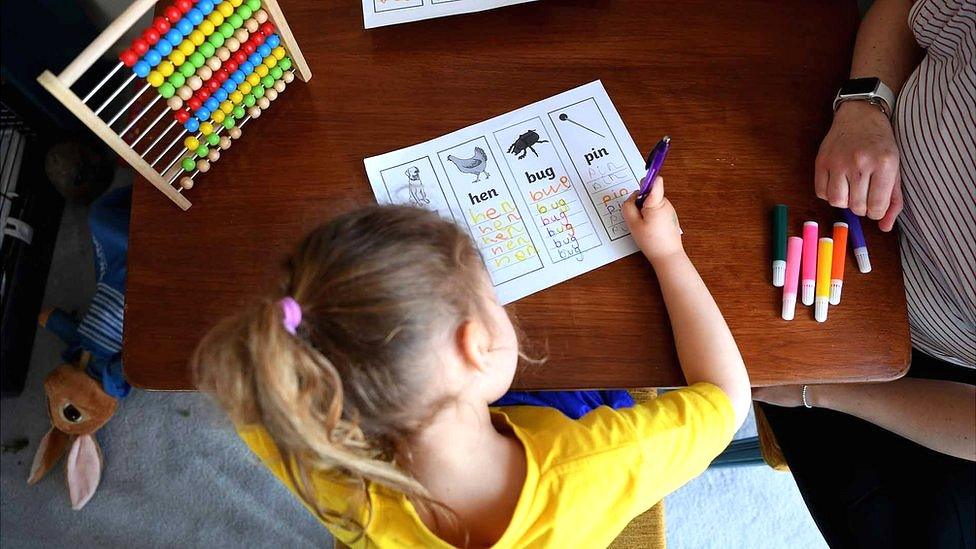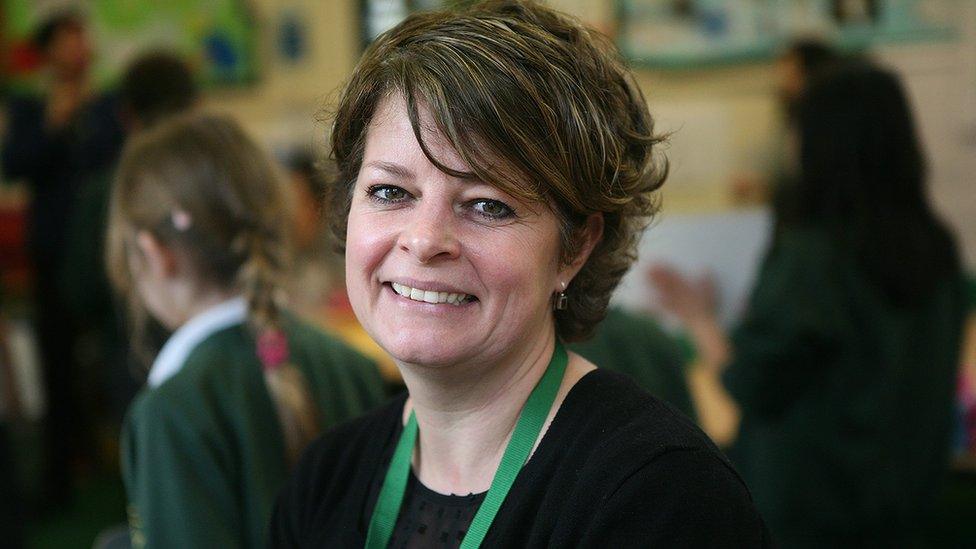Primary school named among top three in England

Pupils aged nine to 11 visited the University of Oxford this month
- Published
A West Yorkshire primary school where many children do not speak English as their first language has been named as one of the country’s best.
Primary school league tables were published on Thursday for the first time since before the coronavirus pandemic.
Carlton Junior and Infant School in Dewsbury was placed in England’s top three schools for pupils’ progress in both reading and maths.
Head teacher Rizwana Mahmood-Ahmed said the school had “huge waiting lists”.
“It’s just lovely to see the standing the school has in the community and beyond,” she said.
Mrs Mahmood-Ahmed said she had joined the school as deputy head in 2008, at a point when it had falling pupil numbers.
She said: “It has been a real battle getting here and it hasn’t happened overnight. There are several changes we have made over the past decade or so.”
These changes included new staff, a curriculum overhaul and a focus on driving up the aspirations of pupils.
Mrs Mahmood-Ahmed said the results were down to the hard work and commitment of the whole school team over many years.
Teachers encouraged parents to get fully involved in helping children learn at home, hosting regular in-person workshops for mums and dads.
They also aimed to increase the number of pupils who went on to study at one of the country’s prestigious Russell Group universities, taking children on a trip to the University of Oxford each year.
However, Mrs Mahmood-Ahmed said aspiration was not just about academic attainment and the school also fostered pupils’ ambitions in other ways, such as through working with cadet groups, the police and local sports teams.
She said: “It’s about finding yourself and having that love for self, because we struggle with that in this community. There are so many children that have low self-esteem.”

Head teacher Rizwana Mahmood-Ahmed said she was very proud of her team
Seventeen different languages were spoken by children at the school, she said.
Official figures show 40% of its pupils did not speak English as a first language but Mrs Mahmood-Ahmed said the true figure was far higher.
She said the area often welcomed new families from all over the world, so the school had put special learning programmes in place for any children who were completely new to English.
Thursday’s league tables, external compared the results of more than 16,000 primary schools across England, based on assessments taken by Year Six pupils earlier this year.
These pupils experienced major disruption to their learning during the coronavirus pandemic, when lockdowns forced schools to close.
The pandemic had been a difficult time for Carlton Junior and Infant School, Mrs Mahmood-Ahmed said, particularly as many of the pupils lived in nearby flats.
She said: “They don’t have yards and there are hardly any play areas, so they came back with very weak core muscles.
“They had no fine motor skills, not being able to grab a pencil. They had no gross motor skills, not being able to ride a bike.”
As a result, when classes returned to normal the school placed a big emphasis on sport, drama and music to develop the children’s physical strength and social skills.
'Constant pressure'
The league tables placed Carlton Junior and Infant School second in England for reading progress, a measure which compares children’s abilities in Year Two with their abilities in Year Six.
It was placed third for progress in maths and was West Yorkshire’s joint best school overall, along with Carleton Park Junior and Infant School in Pontefract.
Both schools saw 97% of pupils reach expected levels in reading, writing and maths.
Guidance released by the Department for Education to accompany the league tables said people should be cautious about making comparisons between schools based on attainment figures alone.
It said: “National assessments examinations are useful indicators of pupils’ outcomes, but they only represent a sample of what pupils have learned.”
The issue of whether school leaders are under too much pressure has been in sharp focus since the death of Reading head teacher Ruth Perry, 53, who took her own life in January while waiting for an Ofsted report to be published.
Mrs Mahmood-Ahmed said while it was nice for the Dewsbury school to be recognised for its achievements, she had concerns about the pressure that league tables and inspection regimes had on head teachers.
She said it felt like teachers were “not trusted as a profession”.
She said: “If you look at some of the high-performing countries, they don’t test as much as we do. It is just constant pressure.”
Follow BBC Yorkshire on Facebook, external, X (formerly Twitter), external and Instagram, external. Send your story ideas to yorkslincs.news@bbc.co.uk, external.
Related topics
- Published7 June 2023

- Published7 December 2023
